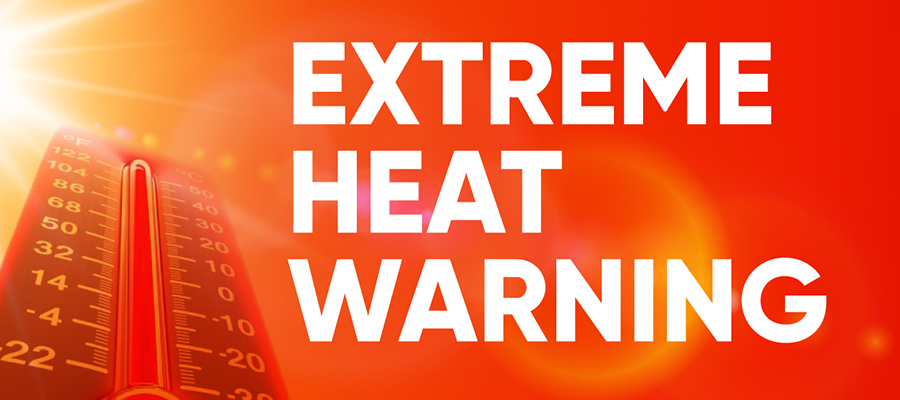Extreme weather warning: how to stay safe
Wednesday 02 January 2019

Friday 4 January is expected to reach extreme temperatures of 42 degrees Celsius and damaging winds with gusts of 100km/h are expected in the afternoon.
Extreme heat can put your health and risk, so make sure you know how to keep yourself and your loved ones safe.
Many of us are vulnerable to the heat which can have adverse health impacts including heat stroke, heat exhaustion, dehydration, cramping or even death.
It is important that you are aware of your own health as the heat can make existing conditions worse, or bring on new health concerns. It is also important that you keep an eye on those around you to make sure we all stay safe.
Stay on top of the heat by:
- Planning ahead: Choose the coolest parts of the day to be outdoors. Store medicines at the recommended temperature. Check your aircon works and be prepared in case of a power failure.
- Checking in on others: Extreme heat can affect anyone, but older people, young children and people with a medical condition are more vulnerable. Regularly check in on anyone who might be at risk.
- Give pets plenty of water (even ice-blocks) and shade.
- Finding the coolest places: Spend time outside of the sun, in air conditioning, for example a library, shopping centre or cinema. Wear loose, breathable fabrics like cotton and linen. Seek shade, and don’t forget a hat and sunscreen.
- Drinking more water: Always carry a water bottle and sip often. Alcohol, tea and coffee dehydrate you – water is always best.
- Never leaving anyone in the car especially kids and pets: Even on a mild day, the temperature inside a parked car can be far hotter than it is outside.
To find out more, see heat safety resources offered by The Department of Health and Human Services.
To prepare for the damaging winds:
- move vehicles under cover or away from trees
- secure or put away loose items around your house, yard and balcony
- keep clear of fallen power lines.
Keep updated on weather warnings by visiting the Bureau of Meteorology website or call them 1300 659 217
For life-threatening emergencies, call 000.
For more information, email us at [email protected] or call us on 9205 5555
